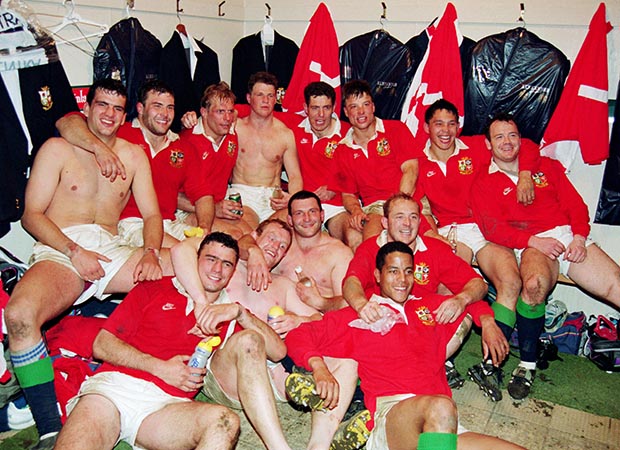
 The last truly amateur tour in Lions history ended up as just about the perfect metaphor of everything that had preceded it in the previous 100 years or so. The crowds and hype were huge, the squad was essentially a happy bunch, though some overdid the socialising and drinking – subconsciously perhaps many realised it was the last hurrah – and while much of the rugby and commitment to the cause was excellent there were notable lapses in standards.
The last truly amateur tour in Lions history ended up as just about the perfect metaphor of everything that had preceded it in the previous 100 years or so. The crowds and hype were huge, the squad was essentially a happy bunch, though some overdid the socialising and drinking – subconsciously perhaps many realised it was the last hurrah – and while much of the rugby and commitment to the cause was excellent there were notable lapses in standards.
The tour featured arguably the Lions best ever Test win in New Zealand but perversely there was also a couple of defeats and performances that did no honour to the jersey. The midweek team was prone to overdo the partying and occasionally went AWOL to the detriment of the squad generally.
There were also a number of controversial, pivotal refereeing decisions in the first Test that left the Lions furiously shaking their heads. There were good times and happy days – and no great division like the England/Scotland schism on the 1989 tour could be detected – but ultimately a barrowload of regrets as well. It was ever thus.
In terms of selection the tour came off the back of a muted and confused Five Nations which was won by a virtually anonymous French team. England’s double Grand Slam winning team of 1991 and 1992 was undeniably in decline– they finished last but one in the tournament – but the vacuum hadn’t really been filled by any of the other Home Unions.
England, with 17 players including replacements, were over-represented in the tour party and yet ironically the one member of their starting xv who didn’t get selected – prop Jeff Probyn – should probably have been one of the first on the plane. Ireland – 17-0 winners over England in the final game of the Five Nations – were under-represented while a number of Sottish players, normally such good tourists, failed to do themselves justice
And yet there was still so much going for the party. Ian McGeechan’s Lions has breathed life back into the whole idea of Lions touring four years earlier when they came back from the dead to defeat Australia 2-1 and the 1993 party was packed with big names and experienced players. McGeechan returned as coach, a decent crop of those 89 Lions were again available, a young Scott Gibbs was poised to be unleashed on the unsuspecting Kiwis and Scotland’s Gavin Hastings was among the most popular of captains.
This tour really could have gone either way yet, with the horrible inevitability we have grown used to, it all went pear-shaped at crucial stages. Groundhog day.
It all started brightly enough with four enterprising wins in the opening games although the Lions had to come from 20-0 down to beat the Maori.
The first real signs of trouble ahead came around the time of a disappointing 37-24 defeat against Otago.
Scott Hastings, the sort of tough no-nonsense character you need in New Zealand, departed with a badly fractured cheekbone and key line-out man Martin Bayfield suffered a painful back injury when he was upended at a lineout.
This was also the weekend when a considerable mid-tour rumpus came to a head over Wade Dooley who had returned home for his father’s funeral but had been assured by an NZRU official that he would be welcome to return after the funeral and that they would foot the bill.
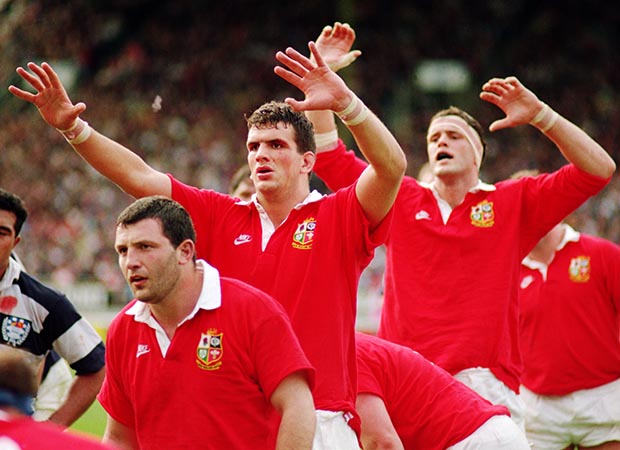 The Lions, however, felt this went against the tournament agreement and said Dooley could return only in a non-playing capacity. Dooley, understandably, declined the offer of being a spectator for the remainder of the tour and Martin Johnson, above, on tour in Canada with England A, was sent for.
The Lions, however, felt this went against the tournament agreement and said Dooley could return only in a non-playing capacity. Dooley, understandably, declined the offer of being a spectator for the remainder of the tour and Martin Johnson, above, on tour in Canada with England A, was sent for.
It was the Home Unions secretary Bob Weighill who copped most of the players’ considerable ire over what they perceived as the shoddy treatment of Dooley. In fact he was simply going by the book even if that ‘book’ was decades out of date and rather dismissive of the requirements of the modern game and those players puttig jobs and careers on hold to play at the top level.
Tempers flared. At one stage Weighill found himself answering the door of his hotel room deep into the night as fictitious room service orders – phoned in by the players – arrived one after the other.
It was all pretty unseemly and unnecessary not to mention plain silly and perhaps illustrative of a squad that was beginning to feel the heat. Like all these things the controversy died down as quickly as it sparked up. As Gavin Hasting sagaciously remarked, “It gave us something to bitch about at low point during the tour.”
The Lions were genuinely unlucky in the first Test, and that’s putting it mildly. In the first minute Grant Fox hoisted a high ball which Ieuan Evans fielded in goal, fiercely challenged by Frank Bunce who got a part of his hand on the ball as Evans touched down. Clearly a 22 to the Lions – except Australian referee Brian Kinsey, a fair distance from the action, had a brainstorm and inexplicably ordered a try which still rankles.
Later in the first half Jerry Guscott put Will Carling away for what appeared to be a certain try when Kinsey called play back for a penalty to the Lions for a shirt tug on Guscott by Michael Jones. What happened to the advantage law? Three points instead of seven.
And then, to compound matters, the Lions were done in cold blood at the death after they had fought back and played exceptionally well to lead 18-16 going into the last minute. Dean Richards wrapped up Bunce in one of his trademark tackle and when the whistle went everybody in the ground expected the All Blacks centre to be penalised for failing to release. Even the Kiwis looked surprised– and delighted – when Kinsey awarded a penalty against the Lions.
There have been some hardluck stories for the Lions in New Zealand over the years but, objectivel,y little to beat that first Test in 1993. It’s hard enough beating the All Blacks in New Zealand at any stage, let alone when officialdom makes mistakes that effectively cost them 14 points.
It was an incredibly tough defeat to take, everybody knows the importance of that first Test and for a while the tour tottered on the brink. A 49-25 win in New Plymouth over Taranaki lifted the spirits a little but then the Lions demonstrated a bad dose of mid-tour fatigue with sloppy performances and defeat against Auckland and a very average Hawke’s Bay.
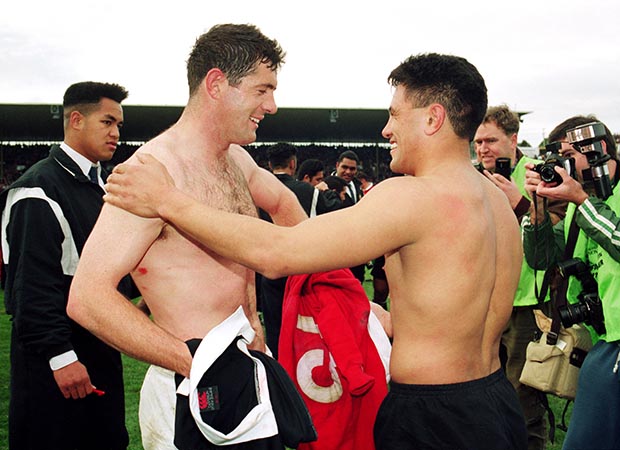 Outwardly there seemed little hope going into the second Test and with skipper Gavin Hastings, above, apparently suffering from a pulled hamstring the news went from bad to worse.
Outwardly there seemed little hope going into the second Test and with skipper Gavin Hastings, above, apparently suffering from a pulled hamstring the news went from bad to worse.
Adversity though sometimes brings out the best in the Lions. Hastings was persuaded – mainly by Rob Andrew and Jeremy Guscott – to at least start and, as sometimes happens in these circumstances, it was a case of mind over matter as he started to move and play with increasing confidence, and that despite the upset of losing the ball in the sun as Fox hoisted one high ball for the bounce to favour Eroni Clarke who scampered home for a try.
The Lions, though, still led 9-7 at half-time and, after Hastings kicked a third penalty after the break, they closed the game out brilliantly with a counter-attacking try from Rory Underwood who sprinted home from 50 yards after good work from Dewi Morris and Guscott. Hastings added a fourth penalty to complete the job.
The MOM on the day was unquestionably Bath backrower Ben Clarke who had just broken in to the England team and enjoyed a fine tour.
As Guscott recalls: “Ben Clarke was unbelievable. He said ‘I’m having them’ and when he got the bit between his teeth against the All Blacks he was unstoppable. All he had to do at blindside was get hold of the ball, smash into people and not worry about his hands. He was immense on that tour, almost head and shoulders above everybody else which is pretty difficult to do. He was on a different plane to the rest of us.”
A quite exceptional Lions win to rank with anything in their history, yet from that high point the fault line of that 1993 tour party was immediately exposed three days later with a pitiful performance from the Dirt-trackers who went down 38-10 to a Waikato team that included this year’s Lions coach Warren Gatland.
Just when the Lions needed to build on a momentous win half the tour party seemed to clock off. It was as if the squad felt they had just won the Test series rather than levelled it.
And indeed, perhaps in their minds, remembering the injustices of the first Test, they deep down did feel they had just won the series.
Four days later at Eden Park the malaise spread. Even though they had the encouragement of rushing into a 10-0 lead, the Lions were blown away 30-13 by a New Zealand team that decided to up the tempo and pace of the game against a Lions squad that was clearly also beginning to have fatigue issues.
It was a cruel and mocking end to a tour that could so easily have been an historic triumph.


Latest News
Super Rugby Americas: Round Ten Review

British and Irish Lions
British and Irish Lions: Biggest winners and losers from Andy Farrell’s selection

















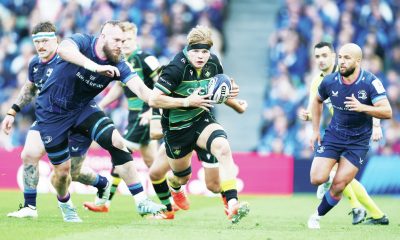

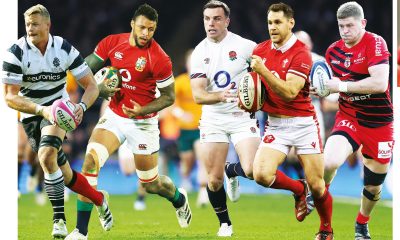

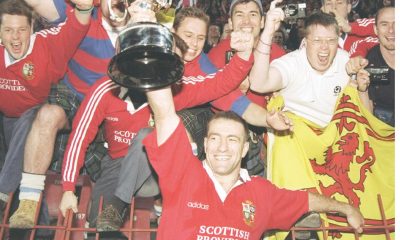



You must be logged in to post a comment Login